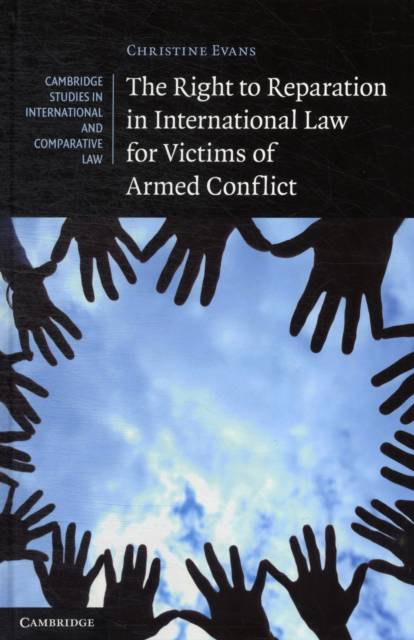
Door een staking bij bpost kan je online bestelling op dit moment iets langer onderweg zijn dan voorzien. Dringend iets nodig? Onze winkels ontvangen jou met open armen!
- Afhalen na 1 uur in een winkel met voorraad
- Gratis thuislevering in België vanaf € 30
- Ruim aanbod met 7 miljoen producten
Door een staking bij bpost kan je online bestelling op dit moment iets langer onderweg zijn dan voorzien. Dringend iets nodig? Onze winkels ontvangen jou met open armen!
- Afhalen na 1 uur in een winkel met voorraad
- Gratis thuislevering in België vanaf € 30
- Ruim aanbod met 7 miljoen producten
Zoeken
The Right to Reparation in International Law for Victims of Armed Conflict
Christine Evans
€ 115,45
+ 230 punten
Uitvoering
Omschrijving
In this evaluation of the international legal standing of the right to reparation and its practical implementation at the national level, Christine Evans outlines State responsibility and examines the jurisprudence of the International Court of Justice, the Articles on State Responsibility of the International Law Commission and the convergence of norms in different branches of international law, notably human rights law, humanitarian law and international criminal law. Case studies of countries in which the United Nations has played a significant role in peace negotiations and post-conflict processes allow her to analyse to what extent transitional justice measures have promoted State responsibility for reparations, interacted with human rights mechanisms and prompted subsequent elaboration of domestic legislation and reparations policies. In conclusion, she argues for an emerging customary right for individuals to receive reparations for serious violations of human rights and a corresponding responsibility of States.
Specificaties
Betrokkenen
- Auteur(s):
- Uitgeverij:
Inhoud
- Aantal bladzijden:
- 298
- Taal:
- Engels
- Reeks:
- Reeksnummer:
- nr. 91
Eigenschappen
- Productcode (EAN):
- 9781107019973
- Verschijningsdatum:
- 30/07/2012
- Uitvoering:
- Hardcover
- Formaat:
- Genaaid
- Afmetingen:
- 152 mm x 229 mm
- Gewicht:
- 589 g

Alleen bij Standaard Boekhandel
+ 230 punten op je klantenkaart van Standaard Boekhandel
Beoordelingen
We publiceren alleen reviews die voldoen aan de voorwaarden voor reviews. Bekijk onze voorwaarden voor reviews.











